Advanced typography in TypeScript
Let’s say we’re building an application related to Ticketing 🎟️. We’re to handle vouchers, discount codes, monthly pass. passes?… For this exercise we’re focusing on three types of Tickets: Type of tickets we are to consider Auto-generated image with Midjourney showing 3 different tickets; coupon, ticket and pass
Let’s start with 3x Typescript models:
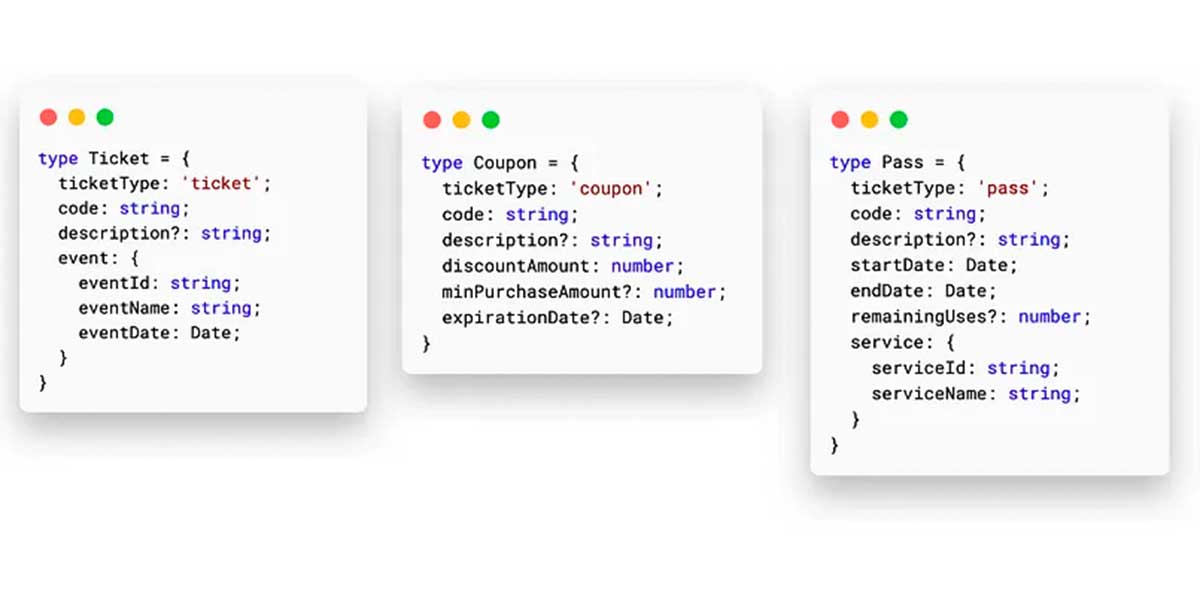
Type definitions in Typescript.
Typical from tech posts, our models seem to be perfectly prepared for extracting common properties 🌈
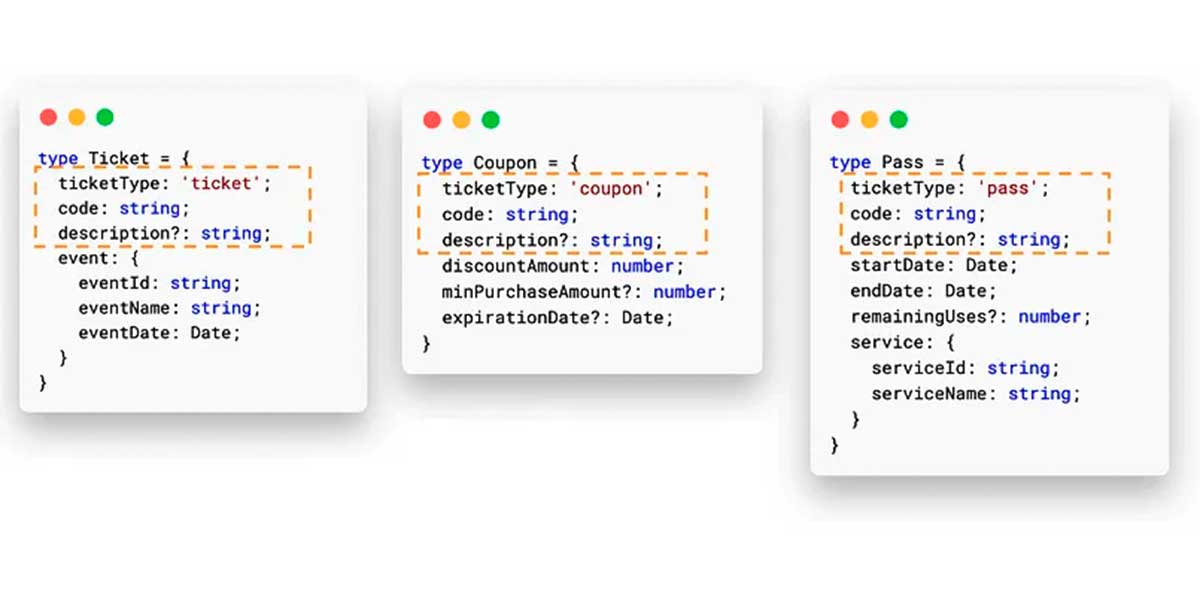
Highlight the common properties from the tree types
If you’re wondering why are we using
Note: the
So far, so good.
At some point in our code we will end with a function with different logic branches depending on the type of the ticket. 101% sure of this.
VsCode (and I guess any advanced editor) is able to help us across
In the third branch — we’ve checked for
type instead of
interface, we may cover this particular in another post. In summary: prefer
type over
interface if you are defining object properties. Remember, it’s called
Typescript , not
InterfaceScript
Note: the
ticketType property is telling which type is fulfilling out of the 3 options. We're defining its type as an
Union Type.
type TicketType = 'event-ticket' | 'coupon' | 'pass';
type CommonTicket = {
ticketType: TicketType;
code: string;
description?: string;
}
type EventTicket = CommonTicket & {
ticketType: 'event-ticket';
event: {
eventId: string;
eventName: string;
eventDate: Date;
};
};
type Coupon = CommonTicket & {
ticketType: 'coupon';
discountAmount: number;
minPurchaseAmount?: number;
expirationDate?: Date;
};
type Pass = CommonTicket & {
ticketType: 'pass';
startDate: Date;
endDate: Date;
remainingUses?: number;
service: {
serviceId: string;
serviceName: string;
};
};
type Ticket = EventTicket | Coupon | Pass;
So far, so good.
At some point in our code we will end with a function with different logic branches depending on the type of the ticket. 101% sure of this.
VsCode (and I guess any advanced editor) is able to help us across
if statements:
In the third branch — we’ve checked for
event-ticket and
pass, so input
Ticket is a
Coupon - VsCode infers the type
Coupon correctly:
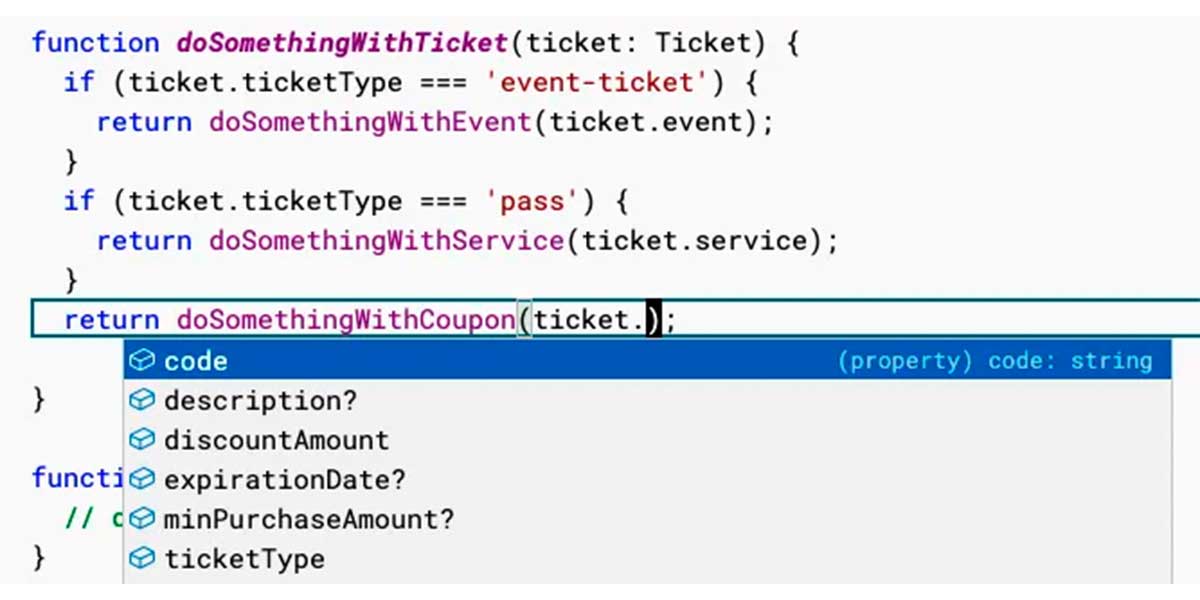
Screenshot of a function in which we are checking first for event-ticket; the IDE infers the correct typing.
This is thanks to
Control Flow Analysis.
But What if we extract an aux. function?
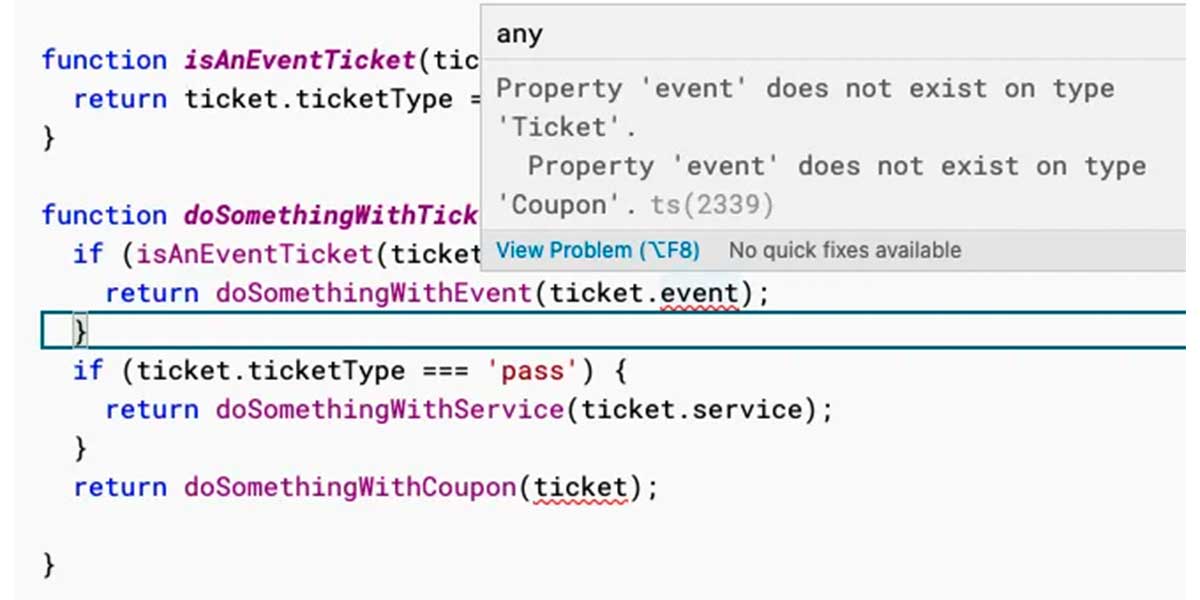
Screenshot with a typescript error (explained below)
Now we are getting a nasty
We are loosing the narrowing for
Property 'event' does not exist on type 'Ticket'.
We are loosing the narrowing for
ticket when extracting the type check to a function.
Type Predicates to the rescue
The trick here is to use a
Type predicate
Directly from the docs:
Any time [..]
We could have just jumped into the type predicate solution, but this way I’m trying to share my mental process.
-function isAnEvent(ticket: Ticket) {
+function isAnEvent(ticket: Ticket): ticket is EventTicket {
return ticket.ticketType === 'event-ticket';
}isAnEvent() isn't returning just a boolean, now it's defining the type guard we need.
Directly from the docs:
Any time [..]
isAnEvent()[..] is called with some variable, TypeScript will narrow that variable to that specific type if the original type is compatible.
We could have just jumped into the type predicate solution, but this way I’m trying to share my mental process.
Overloading
Another tool I recommend in our toolboxes 🧰 is
Function Overload. Continuing with the example we’re using, If we end up in a situation as this one:
“Ey, we can tell the exact Narrowing for Ticket depending on input”.
For some reason, I tried using Generics at first. Looking for some kind of weird “Type-Bounding”.
While the solution is much simpler.
Sometimes it's enough to write what you need: ...kind of a .cpp feeling here, right?
We're overloading
function getTicket(type: TicketType, code: string): Promise<Ticket> {
// when type is 'event-ticket' -> EventTicket
// when type is 'coupon' -> Coupon
// when type is 'pass' -> Pass
}
“Ey, we can tell the exact Narrowing for Ticket depending on input”.
For some reason, I tried using Generics at first. Looking for some kind of weird “Type-Bounding”.
While the solution is much simpler.
Sometimes it's enough to write what you need: ...kind of a .cpp feeling here, right?
We're overloading
getTicket(); Typescript will infer the exact type like a charm:
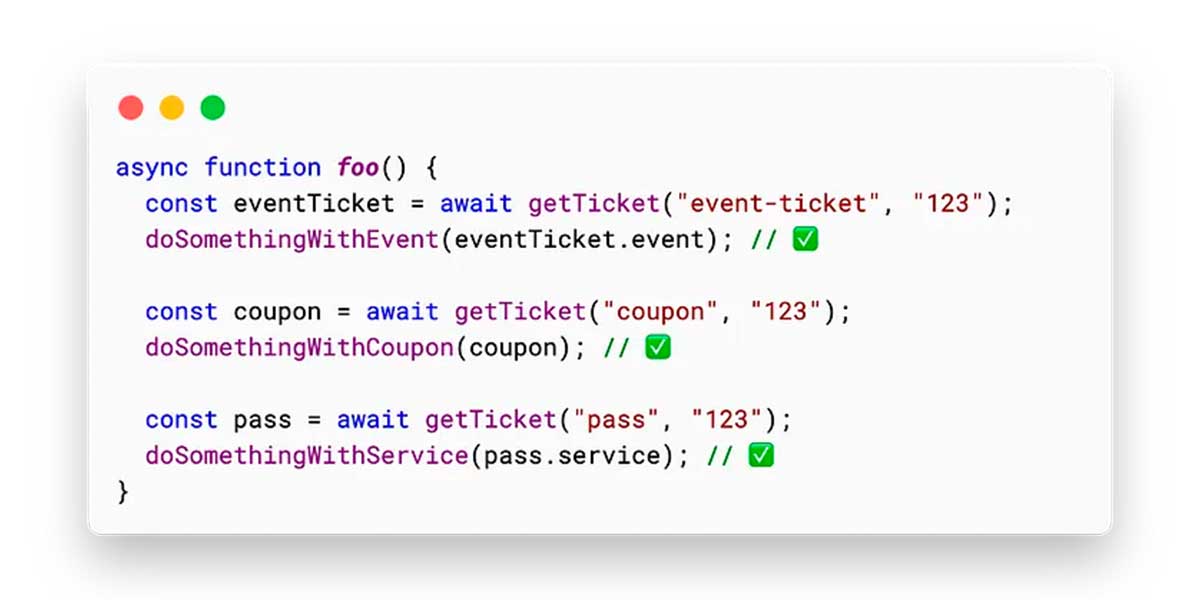
Correct infer of types
In this post, we've explored
type predicates,
narrowing, and
function overloading concepts in TypeScript. These are powerful tools for developers. With a few tricks, we can enhance our typing skills and improve the reliability and flexibility of our TypeScript code.
Thanks for taking the time to read this post.
Thanks for taking the time to read this post.

